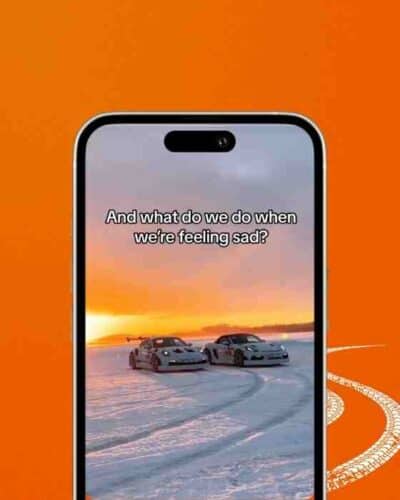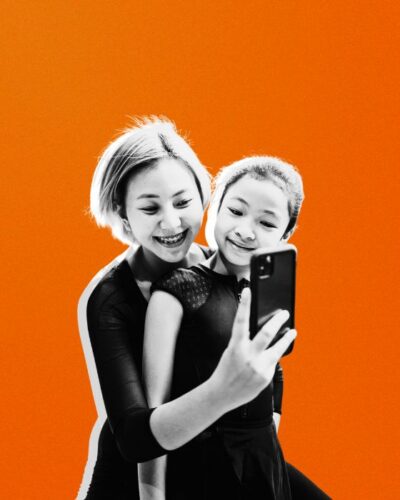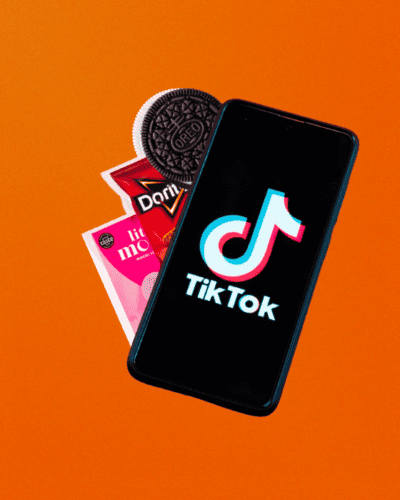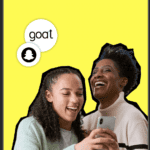Retouched photos and heavily filtered videos have become the norm; so much so that terms like “Instagram face” have become part of our cultural vernacular.
But the recent “Bold Glamour” TikTok filter sparked a major conversation online, as people questioned whether these filters have gone too far and could be majorly contributing to mental health and self image issues amongst social media users (particularly young women and girls).
Let’s explore…
Social Media Filters – The Statistics
By the age of 13, or used a filter available to them on social media. And with posted to social media, it’s clear that we’re just getting started.
With this rise in popularity, and feelings of inadequacy. 94% said that they felt under pressure to look a certain way, and 70% felt pressure to showcase a “perfect life”.
Researchers have linked the rollout of social media filters with rising unattainable, and even harmful, beauty standards. TikTok’s Bold Glamour is the most recent feature to come under fire. Many have claimed that the augmentation’s ‘seamlessness’ makes it a danger to the platform’s users, particularly young women.
Now, let’s get even further into it…

TikTok’s Bold Glamour Filter
Bold Glamour, the latest amongst a breadth of TikTok filters, takes your face and reflects back a glammed-up reinterpretation with stronger eyebrows, plumper lips and cheekbones etched in stone.
The filter is proof that filters have come a long way. Most of us will remember Snapchat’s dog-ear days fondly, but now we’re verging on a new frontier.
It’s common for TikTok users to play around with features that enable a new hair color, makeup style or even a new age bracket, but Bold Glamour stands accused of deteriorating the relationship with our own faces.
Upon discovering it, users immediately identified the scary potential calling the filter out for furthering the detriment to self-image.
What’s so different about this feature? Bold Glamour is able to keep up the mask, where other filters only alter or hide parts of your face. Many believe that Bold Glamour unravels years of hard work put into realistic beauty standards, and that the feature could soon make it difficult to differentiate between filter and real image. This is the beginning of a new line of filters coming down the belt, and it’s only a matter of time before these tools are used for cat-fishing or other forms of digital deception.
Other TikTok filters that damage self-image
Beauty filters are no stranger to TikTok. Before Bold Glamour, users could scan their faces in-app with the Beauty Scanner Filter, which promised to rank users based on their perceived attractiveness on a scale of zero to 100. Now, this needs no explanation as to how this can damage a person’s self-esteem. Some users had reported that the filter would issue a score of 14, and then 90 in a second attempt, which shows that it functioned on a randomized basis. However, this wasn’t transparent and those using it had no way of telling.
The harsh reality is that filters like these can trigger a release of dopamine, because we are anticipating a possible reward from the information we get. Over time, this can turn into an unconscious habit, and we may continue to pursue validation from outside sources.
Elsewhere, there’s the inverted face filter which reportedly shows you how you appear to others by flipping your reflection. As we’re led to believe, a symmetrical face is a standard for beauty. This filter has led many to fixate on the asymmetry of their faces, therefore offering little in the way of self-acceptance

TikTok user demographic
TikTok is most popular with. In the US, those aged 10-19 account for 25% of TikTok’s active users. It’s a similar story in the UK, with 24% of 15-25 year olds active on the platform.
On a global scale, females account for 57% of TikTok’s active users, while males make up just 43%. So by those numbers, the most popular users on the platform are young women.
The potential impact on mental health & self-image.
We mentioned how these filters can act as an internal reward system, triggering our dopamine receptors based on the so-called “positive reinforcement” issued in-app. Without delving too deeply into neuroscience, these filters are meddling with our brain chemistry, and in the case of #BeautyScanner a less than desired “rating” could spark underlying insecurities in an individual.
Jess Wiener, Cultural expert for the Dove Self-Esteem Project says “viewing unrealistic and unachievable beauty images creates an unattainable goal, which leads to feeling of failure.”
This is especially true of young girls who’s journey through adolescence is complicated by a world of filters and airbrushing.
Dove created the #turnyourback initiative as part of its The beauty company launched this initiative as a combatant to the Bold Glamour filter, and focused on a set of rules that encouraged real beauty and prohibited airbrushing.
Body Image Expert, Dr Phillipa Diedrechs spotlights how brands can take more of an active role in preventing dangerous beauty standards:
“Brands can do more to showcase reality and take unnecessary pressure away. By doing so, we can have a positive impact on the lives of young girls.”
TikTok User Response
So we’ve heard the experts’ opinions. What about TikToker’s themselves?
Rosaura Alvarez posted a video to her TikTok channel testing out the Bold Glamour filter. Alavarez called it a “problem” and called out the platform for taking things “a little too far.” The caption on this video read:
“As someone who has experienced body dysmorphia growing up this makes me sick to my stomach,”
The fear is that you cannot tell that Bold Glamour is a filter. If you touch your face, move around or swipe your hand across there’s no glitching like with other filters, your plasticised face stays intact.
In another video, TikToker Joanna Kenny also damned the filter and showed her followers how different it made her look.
“I don’t look anything like this, but the filter itself looks natural,” Kenny says. “I don’t want to say this about myself, but I actually look ugly when I take this filter off,”
“I’ve done a lot of work to unlearn that I owe prettiness to anyone,” continues Kenny. “So here’s a reminder for anyone that needs it, filtered skin is not a skin type.” Kenny says.
What does TikTok say?
As of mid-April, the TikTok Bold Glamour filter has been used in over 40 million separate videos.
The world’s biggest publications and outlets from a variety of industries have used their platform to warn against the ill-effects connected to the feature. Phycologists, thought leaders and creators have all weighed in.
TikTok themselves haven’t officially responded to the backlash and aside from instructions on how to use filters, there are no disclaimers, warnings or transparency on how the filters work in .

So, the big question, should brands tell the influencers they work with NOT to use filters like Bold Glamour when creating content for them?
Authenticity is more important than ever within influencer marketing, and using filters to boost the effect of a skin or cosmetic product is deceiving. The ASA ruled in 2021 that influencers are banned from using filters when advertising beauty products on Instagram (UK).
Does using filters as part of influencer marketing come as a contradiction to everything the industry and its creators have been working hard to build? ��������ϲʿ�����’s Head of Marketing, Joanna Hughston, affirms that this is far from an open and shut case.
“It’s a tricky question, and I think it does depend on what the influencer is promoting. For example, if they’re working with a beauty or skincare brand, then absolutely using any kind of “skin smoothing” or “beauty enhancing” effect seems dishonest and even misleading. But for unrelated products, it’s not necessarily as relevant.
Within moderation, certain filters can be used without being problematic, “but the issue with the Bold Glamour filter”, Joanna says “is that it is SO extreme,”
“As a brand marketer, I would be concerned about working with any influencers that regularly use these types of filters as it could be harmful to their audience. By choosing to work with them your brand could be seen as condoning or even contributing to this harm.”
All in all, brands should consider steering away from talent that insists on the use of filters, especially if authenticity is the metric you’re aiming for. Under any circumstance, brands should be vetting influencers in advance of a campaign anyway, so you should already have a good idea of whether they fit with your values.
Here’s a thought, what if the rise of Bold Glamour actually sparks creators and brands to take a stronger stance against unattainable beauty standards? ��������ϲʿ�����’s Senior Account Executive, Caitlin Thompson, links this to the recent ‘de-influencing’ trend sweeping TikTok and wider social media.
“Off the back of de-influencing, it’s interesting to see people engaging in discussion about trends on social, and people wanting to show their ‘raw’ or unfiltered selves,”
“Bold Glamour highlights an interesting conversation around current beauty standards through; what I can only think to describe as “de-influencing trends”. Lifted brows, sculpted cheekbones, contoured nose and fuller lips are all in fashion and the filter definitely helps you achieve that look. However, people are increasingly aware of filters, influencers and the ways they use filters to augment reality. What we’re seeing now is brands and creators striving to showcase the difference of filter vs no filter and putting this front and centre.”
Concluding thoughts – Is the TikTok Bold Glamour Filter Toxic?
As Caitlin referred to, it’s interesting that a high proportion of the Bold Glamour videos on TikTok were actually people criticising it. So while we should always remain vigilant about the effects of social media on mental health, and consider our responsibility as marketers using this platform, maybe we don’t need to be as worried as we initially thought?
Social media and influencers have given us the power to criticise and call out these issues in a way that traditional advertising never did!
…
Read more on de-influencing in (feat. ��������ϲʿ����� Account Director, Ellie Hooper) and (with ��������ϲʿ����� Head of Strategy, Jago Sherman).





